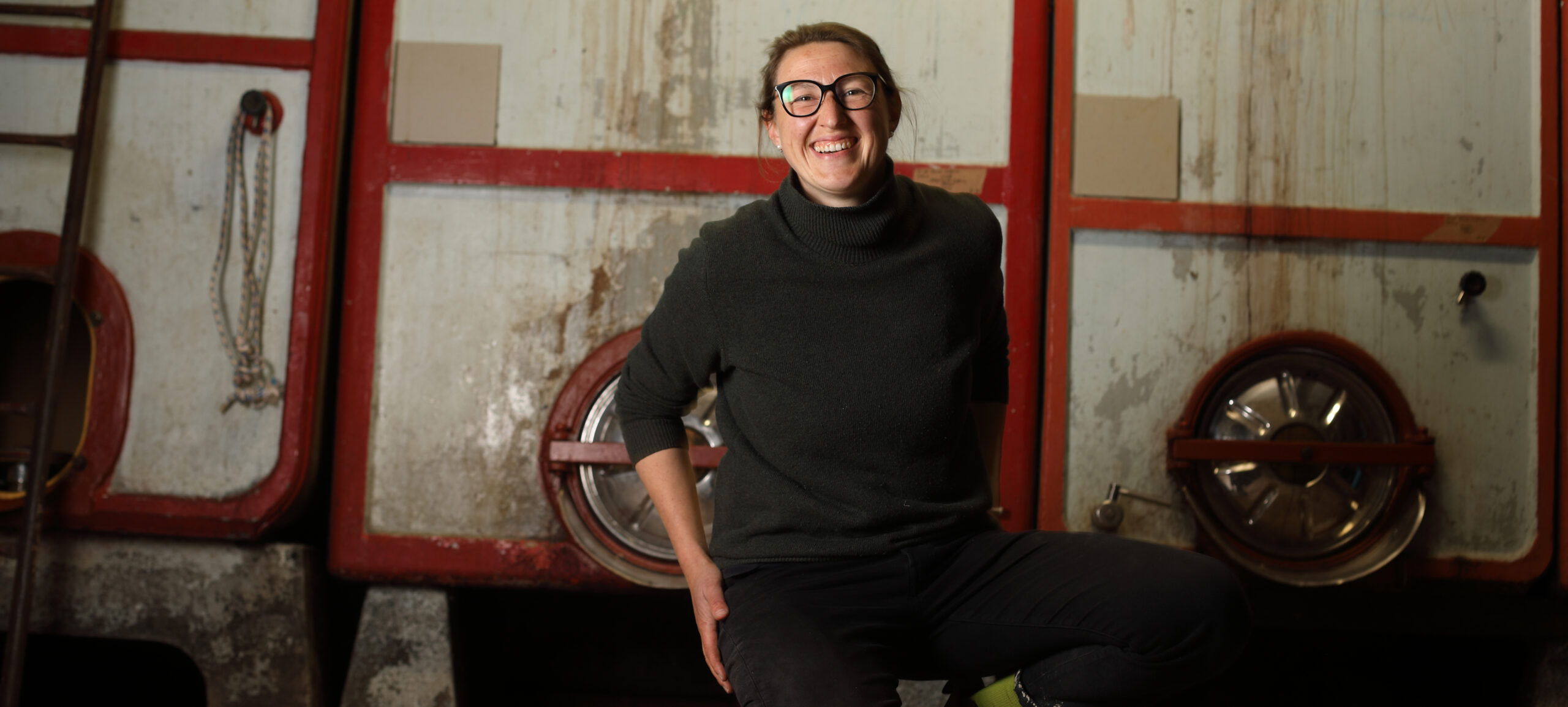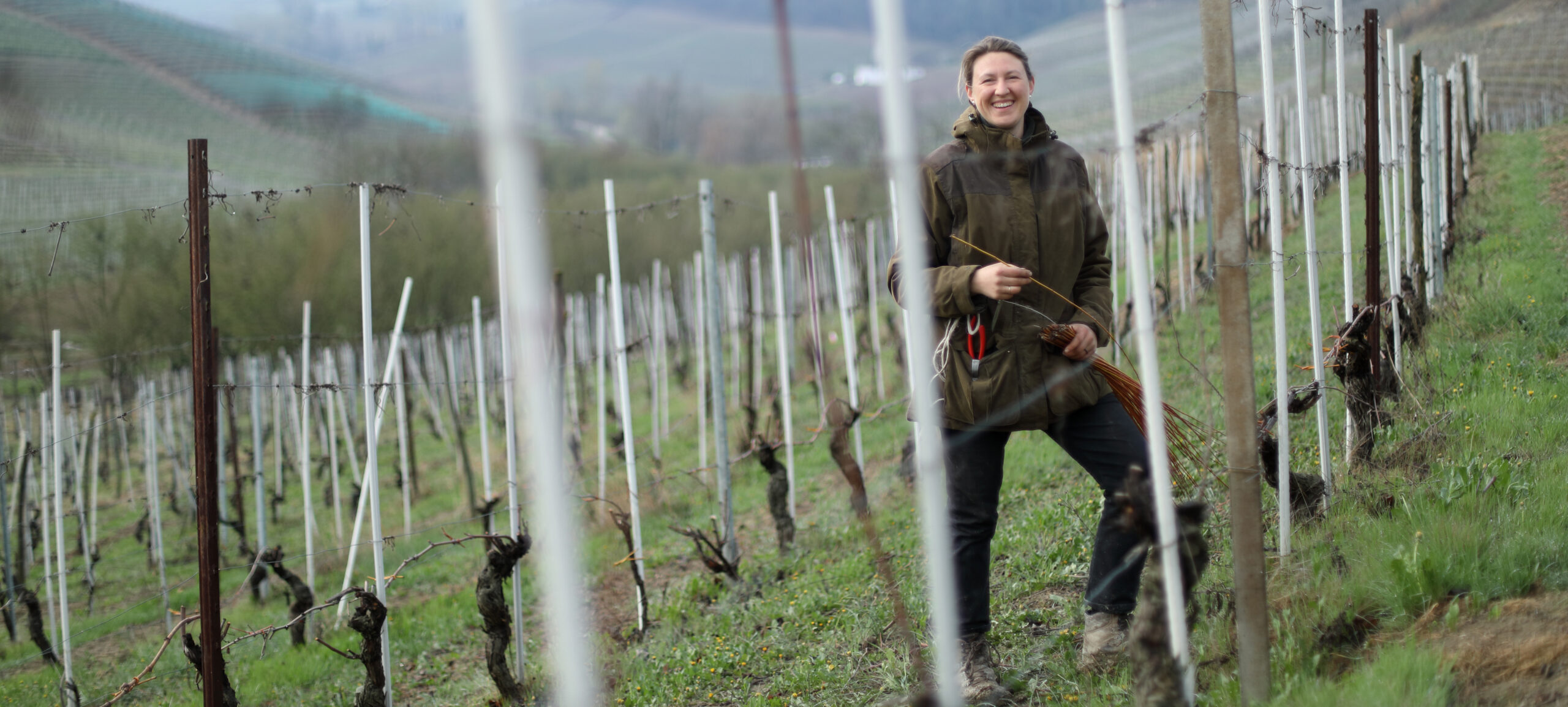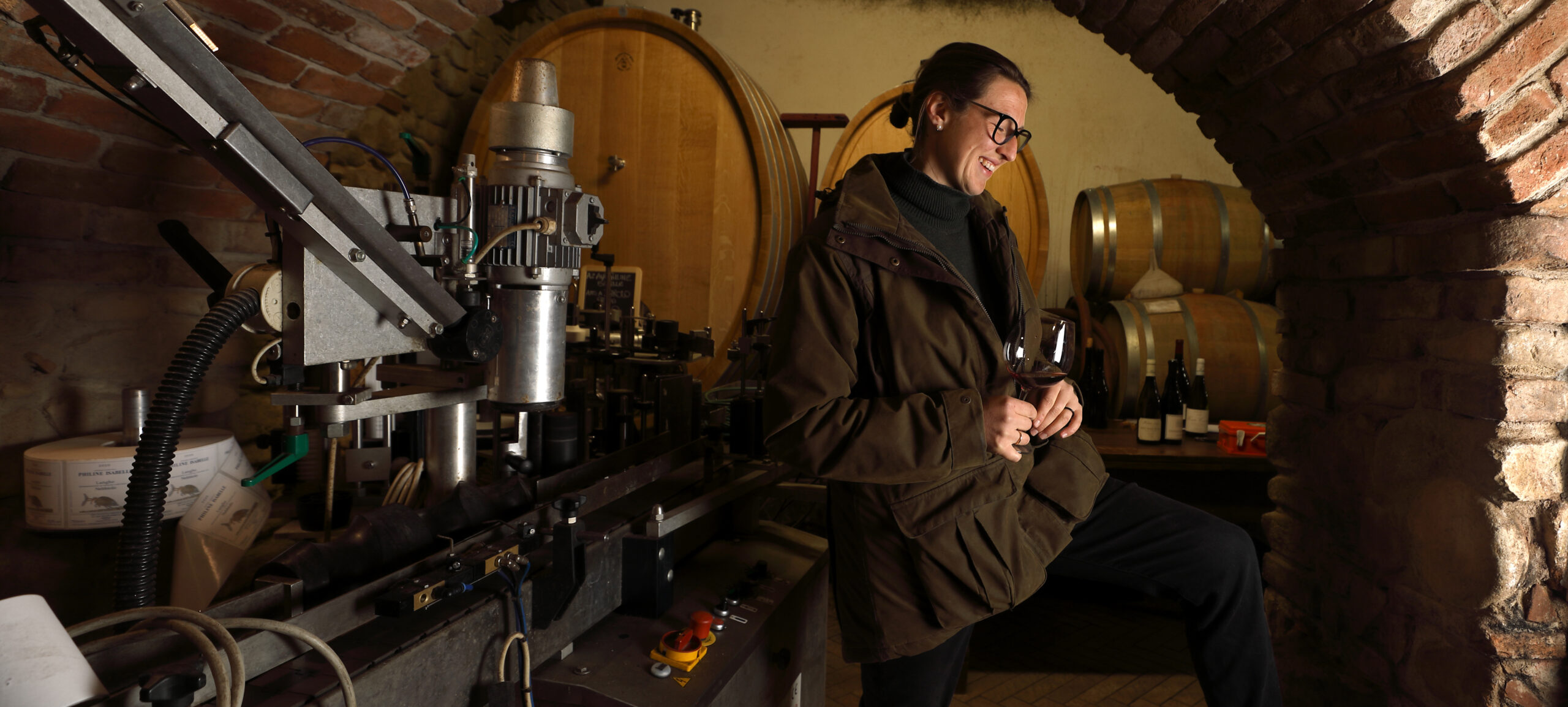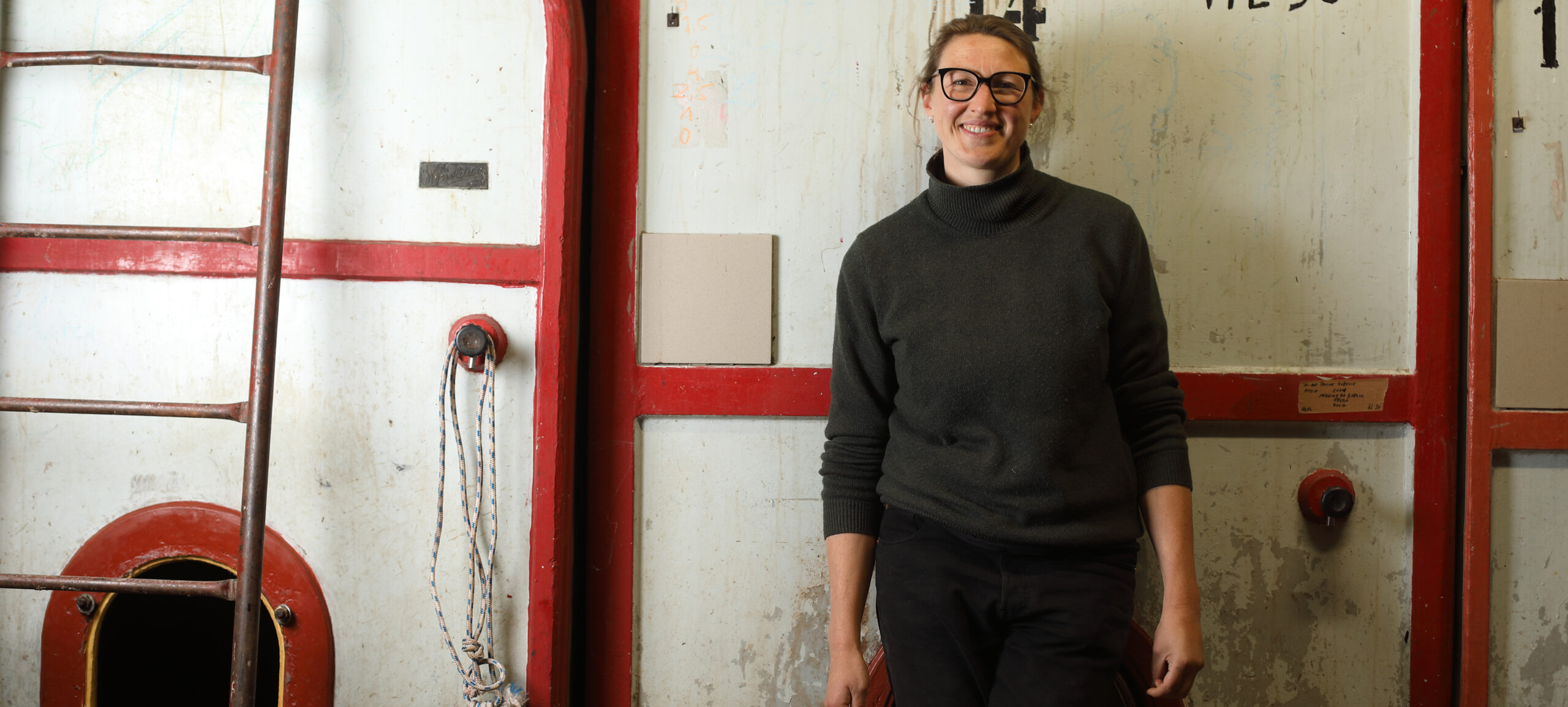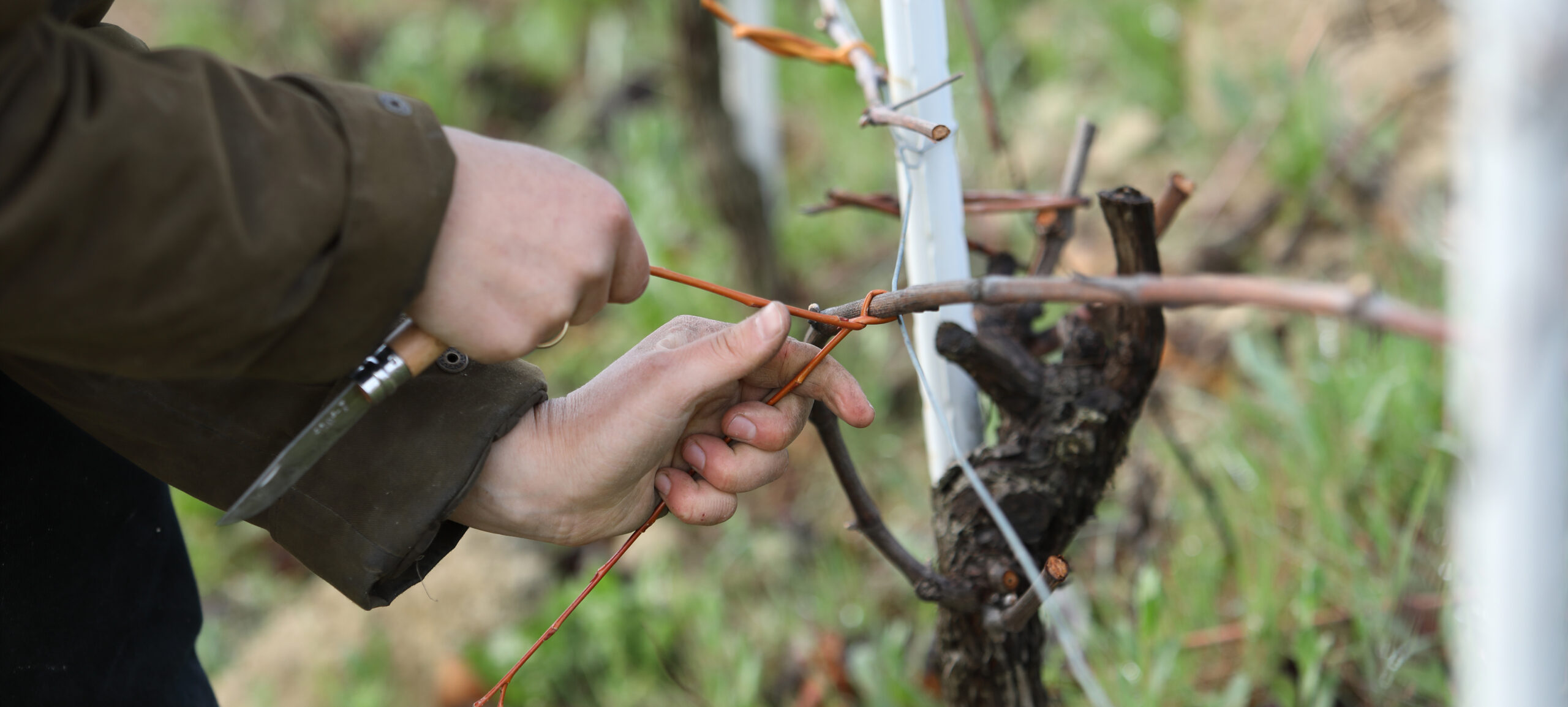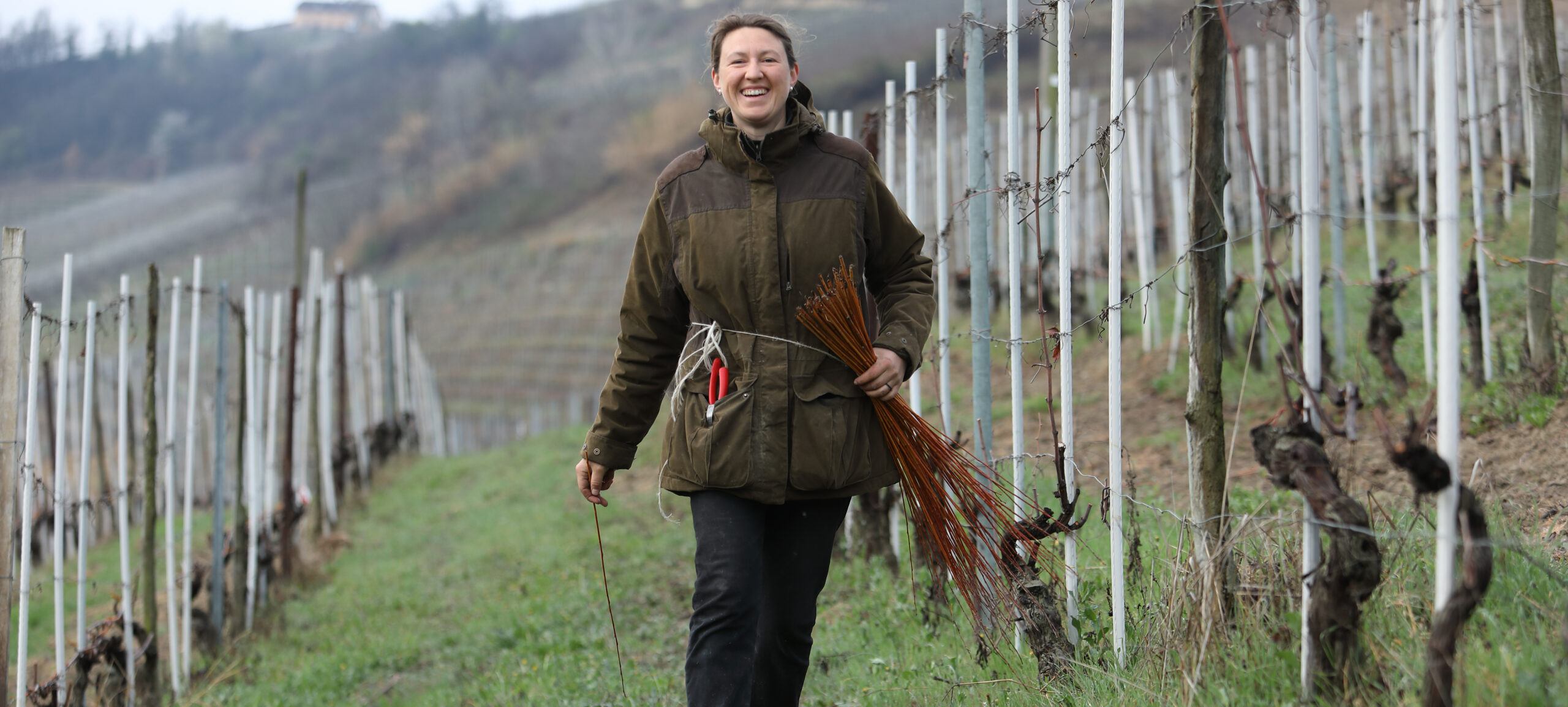Philine Isabelle Dienger’s path to Piedmont began in her home country of Germany. Born and raised in Mannheim, Philine wasn’t born into a winemaking family, though wine and restaurants had always been a part of her upbringing. Her parents, a tailor and economist, were interested in food, taking Philine to restaurants where wine was always a part of the experience. During her initial studies at University in Mannheim in Politics and Administration, Philine also worked at a wine-centric restaurant and soon realized that working in a manual and green profession would suit her better than an office.
After consulting the owner of the restaurant, he introduced her to Andreas Schumann of Odinstal, a small, but pioneering biodynamic estate in the hills above the village of Forst, in the Pfalz region of Germany. Philine worked with Andreas for a year, working half the week at the winery, and half a week at the restaurant. This work set her on her path of viticulture and winemaking and she decided thereafter to attend a wine trade school in Neustadt working for three weeks at a winery followed by a week of classroom instruction. Over the next four years, she finished her baccalaureate, working at Odinstal for much of this period, taking a small detour to work a harvest at Alois Lageder in Alto Adige in 2013, Finally, she returned to the Pfalz to work at Dr. Bürklin-Wolf, a benchmark biodynamic winery in Forst and to finish university. Bürklin had a different experience than Odinstal, and she became particularly interested in vineyard work and especially the art of pruning.
After harvest at Bürklin, Philine returned to Italy where she worked for Master Pruners, Simonnet and Sirch, widely considered the world's most important vineyard pruning consultants. Their work introducing “soft pruning”, sap flow analysis, and understanding the vine disease, Esca, have brought them international recognition and work in almost every wine producing area on earth. During this period, Philine also worked directly with Martin Gojer, who managed his winery Pranzegg, in Bolzano, while also being responsible for the German-speaking parts of Europe for Simonnet and Sirch. After two years working and traveling with Martin for Simonnet and Sirch, Philine was hired to manage Heinrich, a large biodynamic winery in Austria’s Burgenland. Her work in the vineyard and cellar was coupled with the responsibility of translating this work to the sales side of the winery, which entailed a bit of travel. In 2017 at a tasting in Lisbon, Philine met Marta Rinaldi, and the two fell in love.
In March of 2019, Philine left Heinrich, headed for Piedmont. When she arrived, she worked with Giuseppe Rinaldi and Giacomo Fenocchio and immediately began looking for fruit to make her own wine. Nonetheless, while her work experiences had equipped her with a technical past, she felt that “it was working with Marta that really helped me understand what I wanted to experience when I drank wine”, and about transferring intentions into final results and avoiding mistakes and errors early on. “What I am searching for is definitely a real mastership, to be in the details, but not in a precise, maniacal way. I want the knowledge, depth, and the support of my science background but intuition is also incredibly important. I’m very inspired by Japanese craftsmanship. I believe that the sum of all the small parts makes a masterpiece.”, she noted.
Philine’s first solo vintage was in 2020. With land prices high and availability quite low, she had to be dependent on contracts and partnerships for the first few releases. But starting with the 2024 harvest, she was able to acquire her own property to be in the position to practice the cultivation practices that she was aiming for. She purchased a small (.35ha) plot of Barolo in Le Coste di Monforte, which had been farmed organically before her purchase. This south-east exposed slope is in a prime section of the vineyard. In addition, she was able to purchase .35ha of Dolcetto from the same owner. Between Roddi and Verduno, Philine was also able to purchase a south-facing, 1-hectare plot, half of which is planted to Nebbiolo. The rootstock was planted using a Keyline Design system for water preservation along with a full polyculture of plants including cover crops, shrubs, vines, and trees all interplanted with the vines. Here, the training system is in Pergola to increase shadow for grapes and soil and to allow for livestock to graze under the vines during the growing season.
In the Alta Langa, Philine has 1/3 of a hectare on the property of her friends Pascoli d’Amaltea, excellent producers of sheep and goat cheese. Philine planted the rootstock in the winter of 2023 and Chardonnay will be the variety cultivated here, also trained on Pergola to allow for grazing of the animals on the property. In addition to these projects, Small amounts of Dolcetto, Barbera, and Langhe Nebbiolo will continue to be produced thanks to her great cooperation with Luigi and Massimo Veglio.
All in all, with a mere 1.5 hectares, Philine Isabelle is a tiny, crown jewel of a property. In fact, she has no intention of growing her estate, but rather focusing on the continuation of her deepening understanding of the soil and the plant’s microbiome. To that end, she even offers viticultural seminars to share her in-depth knowledge and unique techniques with other wine professionals. While the wines will always remain in short supply (and in high demand!), the work that Philine is doing at her small Domaine can be felt across the region as a pioneer for exceptional and enlightened viticulture.
